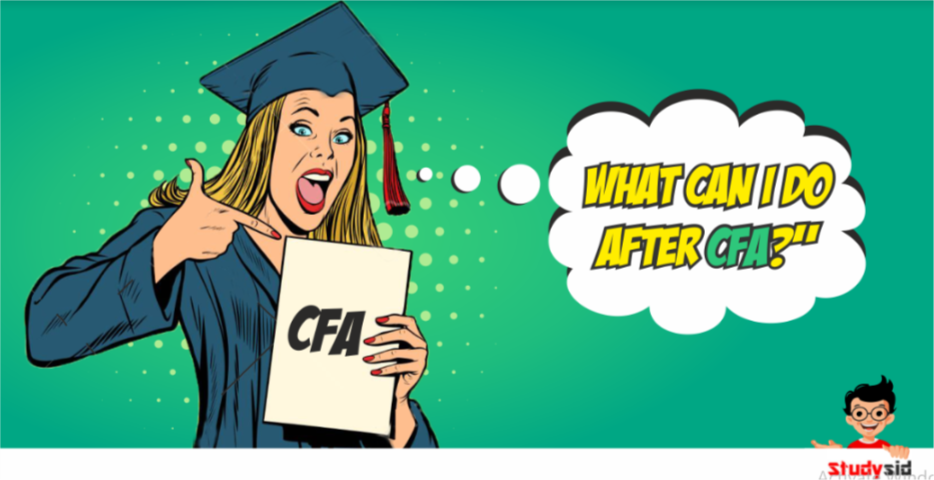While Engineering and Finance are two completely different fields, it is not entirely impossible for a person with an engineering background to crack the CFA exam. A CFA Charter can be an extremely useful value addition to your CV, opening up opportunities in the field of investment banking, insurance, hedge funds, consultancy and advisory etc.
While qualifying these exams don’t ensure a job but certainly can give you an edge over others. It would be an add-on qualification for your career and resume. Companies’ shortlist the prospective employee’s CV through searching their database on important terms like “CFA”, “FRM”, if these terms appear in your resume, your resume becomes more attractive as compared to others. Without an MBA in Finance, it becomes tough for engineers to enter into the field of Finance, and this is where the CFA Charter comes in place.

If you’re an engineer who wants to make a career shift to a financial field then the top priority should be a CFA Charter. The engineering background can give one an edge in quantitative problem solving and combined with a CFA Charter, can make them an ideal candidate for the investment industry. One can also be considered for sales or a trading job after this. If you’re good at numbers and have an interest in finance, you should do the CFA Course. Financial engineering/quantitative finance is a field where they like to hire engineers.
CFA Syllabus
While the syllabus for the CFA exam is entirely different from the one taught in engineering schools, the right amount of effort and preparation can help one in getting acquainted with the subjects quickly. The curriculum includes quantitative methods and economics which consists of topics stated below:-
Economics |
Quantitative Methods |
|
Demand and Supply Analysis: Introduction |
The Time Value of Money |
|
Demand and Supply Analysis: Consumer Demand |
Discounted Cash Flow Applications |
|
Demand and Supply Analysis: The Firm |
Probability Concepts |
|
The Firm and Market Structures |
Common Probability Distributions |
|
Aggregate Output, Prices, and Economic Growth |
Sampling and Estimation |
|
Understanding Business Cycles |
Hypothesis Testing |
|
Monetary and Fiscal Policy |
Technical Analysis |
|
International Trade and Capital Flows |
|
|
Currency Exchange Rates |
Candidates with an engineering background may find it easier to understand the quantitative method concepts due to the past background in maths and statistics. Thus 3-4 subjects such as probability concepts and distribution methods will prove to be quite easy for candidates with an engineering background. Also, students who have had prior experience of studying economics in their school may find it easier to grasp topics related to economics such as demand and supply, economic policies, exchange rates etc. which are part of the CFA curriculum.
Apart from this greater time and focus has to be given to subjects such as Corporate Finance, Portfolio Management, and Equity etc. as these are core finance based subjects and a person with an engineering background would not have studied all of these before. For this, the candidate can either enrol into a coaching class to study from industry professionals and knowledgeable professors. In addition to this, the coaching centres also provide study materials and studying with other students can help one in getting a better understanding of the syllabus efficiently. A large number of topic wise learning modules are also available online and one can resort to them for topics related to finance.
Tips for Preparation
- The first step is to get acquainted with finance. Before starting with your exam preparation with the course books, one can sign up for online courses that will help you obtain a better understanding of finance and stimulate your interest. These courses will introduce you to new financial terms, concepts and models which will be used throughout your exam preparation. Online courses specializing in finance can easily be found on sites such as Coursera, Udemy and Edx.
- It is essential to understand how to read and comprehend financial statements in order to successfully understand finance. Thus candidates with a non-commerce background must acquaint themselves with how to read a balance sheet, accounting terms etc. in order to be able to effectively deal with the CFA curriculum.
- Preparation for these exams requires a regular practice on the courses for 5-6 months if you are not from the finance domain. If you are already well acquainted with the courses, it can be 2-3 months. Candidates sometimes require some kind of coaching and guidance to prepare for the exams. It is also essential to have regularity in preparation and to know how well your preparation is with respect to others.
- The CFA Charter poses certain challenges along the way and it’s up to each candidate to work around them. Meeting with and talking to existing CFA charter holders is a way to understand how to study for the examination the right way and it can also act as a networking opportunity for the future!




